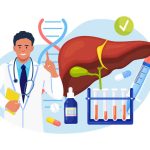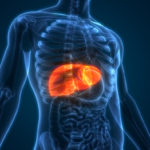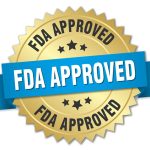
Previous
Could Curcumin Help Your Liver?

Next
Selenium Boosts Liver Protection Regimens
New Diabetes Drugs Good for Fatty Liver Too
A new class of diabetes drugs appears to help manage blood sugar levels while simultaneously benefiting those with fatty liver disease.
Medical professionals, healthcare advocates and the general public are increasingly recognizing Type 2 diabetes and fatty liver disease as major public health problems. Although seemingly involving distinctly separate organ systems, Type 2 diabetes and a fatty liver are both considered to be metabolic imbalances – and they are proving to have more in common than previously thought. One such example of their relationship is the finding that some anti-diabetic medications also benefit fat infiltration of the liver. Presented recently at the annual meeting of the American Association for the Study of Liver Diseases (AASLD), two studies demonstrate that the next generation of diabetes medications may also be advantageous for fatty liver disease.
About Type 2 Diabetes
Diabetes mellitus describes a group of diseases characterized by high levels of glucose in the blood. Revolving around insulin, a hormone secreted by the pancreas, this abnormally high glucose is due to one of these possible three defects:
· Defects in insulin production
· Defects in insulin action
· Defects in both insulin production and action
Insulin is necessary for the body to be able to use glucose for energy. When food is consumed, the body breaks down all of its sugars and starches into glucose, the basic fuel for the body’s cells. Insulin is required to bring glucose from the blood into the cells. Without proper functioning of insulin, glucose builds up in the blood where it can lead to a wide range of health problems.
Although there are several types of diabetes, Type 2 diabetes is the most common, accounting for 90 to 95 percent of all diagnosed cases of diabetes mellitus. Type 2 diabetes usually begins as insulin resistance, a condition in which the cells do not use insulin properly. As the need for insulin rises, the pancreas gradually loses its ability to produce insulin.
Below are several statistics highlighting diabetes’ prevalence:
· According to a 2008 press release distributed by the U.S. Centers for Disease Control (CDC), diabetes affects nearly 24 million Americans.
· In addition to that 24 million, another 57 million people are estimated to have pre-diabetes – a condition that increases the risk for developing diabetes.
· According to the CDC, diabetes mellitus was the seventh leading cause of death in the U.S. in 2007.
About Fatty Liver Disease
A person is considered to have a fatty liver when fat makes up at least 10 percent of his or her liver. Although its true prevalence is unknown, an estimated 20 to 30 percent of American adults have nonalcoholic fatty liver disease (NAFLD). Affecting those who drink little or no alcohol, NAFLD can be mild or more severe.
1. The milder first stage is steatosis, where accumulation of fat in the liver typically does not cause liver damage.
2. The second, more severe stage of a fatty liver is nonalcoholic steatohepatitis (NASH), where accumulation of fat is accompanied by liver inflammation. Fibrous tissue can form with NASH, which can progress to cirrhosis or liver cancer.
Although the exact cause of NAFLD is unclear, the most prominent reasons for accumulation of fat in the liver are significant weight gain and diabetes mellitus. Many health professionals attribute the newly coined metabolic syndrome, a cluster of health conditions that increase diabetes, heart disease and stroke risk, as playing a critical role in the development of NAFLD.
New Class of Diabetes Drugs
Both falling under the umbrella of metabolic syndrome, those with Type 2 diabetes and a fatty liver are usually steered towards lifestyle adjustments to regain their health. But diet and exercise alone are often insufficient for these conditions. Especially for treating Type 2 diabetes, the pharmaceutical industry has been making great strides.
Certain traditional anti-diabetic drugs like metformin and thiazolidinedion, particularly pioglitazone (Actos), have shown promise in treating fatty liver disease. However, it appears that one of the newest classes of diabetes medications, glucagon-like peptide-1 (GLP-1) agonists, also helps mitigate a fatty liver.
Recent studies found that two GLP-1 agonists, liraglutide (Victoza) and exenatide (Bydureon), significantly lowered levels of alanine aminotransferase (ALT) compared with other diabetes medications and placebo. ALT is an enzyme produced in liver cells that leaks into the bloodstream when liver cells are damaged.
Both exenatide and liraglutide help the body cope with high blood sugar in several ways:
· By helping cells in the pancreas that produce insulin when there is too much sugar in the blood.
· By helping cells of the liver to decrease the amount of sugar dumped into the blood.
· By slowing down the passage of food from the stomach to decrease the amount of sugar in the blood after eating.
· By reducing the amount of food needed, because the sugar in the bloodstream is processed more effectively.
Approved by the FDA in January of 2010, Victoza® is administered daily via injection. Although requiring further documentation of its safety to gain FDA approval, Bydureon®’s weekly dosing schedule is greatly anticipated for treating Type 2 diabetes.
Since Type 2 diabetes and NAFLD are so prevalent today, treatments that simultaneously benefit both conditions are likely to become mainstream therapies. With the evidence that GLP-1 agonists lower liver enzymes while helping manage blood sugar levels, those with fatty liver disease can expect to hear much more about this new category of diabetes drugs.
http://www.byetta.com/Pages/index.aspx, Welcome to BYETTA.com, Retrieved November 13, 2010, Amylin Pharmaceuticals, Inc. and Lilly USA, LLC, 2010.
http://www.cdc.gov/media/pressrel/2008/r080624.htm, Number of People with Diabetes Increases to 24 Million, Retrieved November 13, 2010, Centers for Disease Control and Prevention, 2010.
http://www.diabetes.org/diabetes-basics/type-2/?utm_source=WWW&utm_medium=DropDownDB&utm_content=Type2&utm_campaign=CON, Type 2, Retrieved November 14, 2010, American Diabetes Association, 2010.
http://www.drugdevelopment-technology.com/projects/liraglutide/, Liraglutide - Next-Generation Antidiabetic Medication, Retrieved November 13, 2010, Net Resources International, 2010.
http://www.fiercebiotech.com/story/amylin-shares-crater-after-fda-rejects-bydureon-app/2010-10-20, Amylin shares crater after FDA rejects Bydureon app, Retrieved November 13, 2010, FierceMarkets.com, 2010.
http://www.liversupport.com/wordpress/2006/05/nonalcoholic-fatty-liver-disease-and-insulin-resistance/, How To Prevent a Fatty Liver, Nicole Cutler, L.Ac., Retrieved November 14, 2010, Natural Wellness, 2010.
http://www.liversupport.com/wordpress/2006/11/take-the-mystery-out-of-your-liver-tests/, Take the Mystery Out of Your Liver Tests, Nicole Cutler, L.Ac, Retrieved November 14, 2010, Natural Wellness, 2010.
http://www.mayoclinic.com/health/drug-information/DR601875, Exenatide (Subcutaneous Route), Retrieved November 13, 2010, Mayo Foundation for Medical Education and Research, 2010.
http://www.medpagetoday.com/MeetingCoverage/AASLD/23070, AASLD: New Diabetes Meds Diminish Markers of Fatty Liver, Kristina Fiore, Retrieved November 13, 2010, MedPage Today, LLC, 2010.









